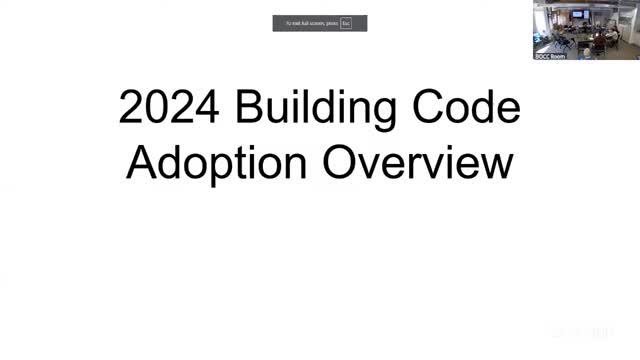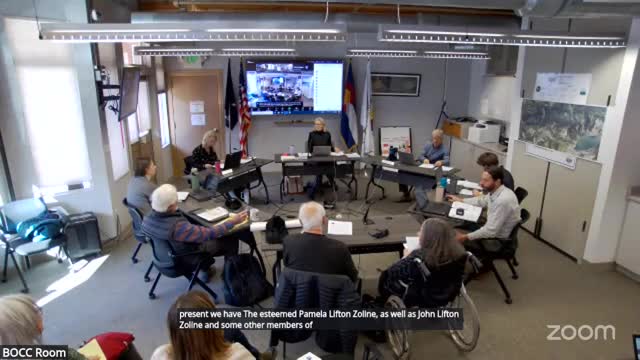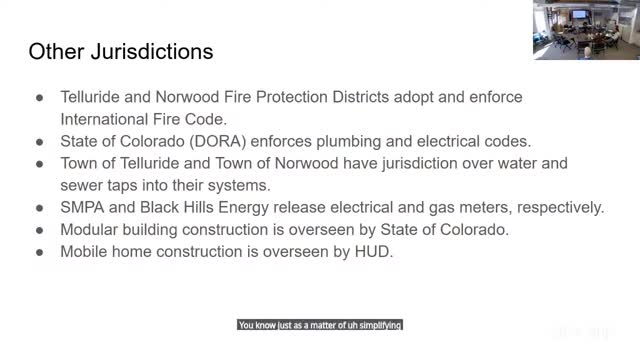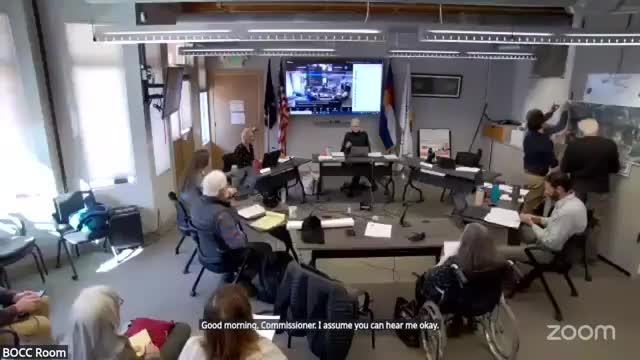Article not found
This article is no longer available. But don't worry—we've gathered other articles that discuss the same topic.

County to adopt 2024 I‑Code cycle, integrate state 'electric/solar‑ready' requirement; wildfire‑resiliency code raises inspection and land‑use questions

County directs outside counsel to pursue recovery paths in Paradox bankruptcy; declines settlement offer in Masson election challenge

County signs second amendment to gondola planning intergovernmental agreement; remains non‑funding participant for 2025

County approves increasing Road & Bridge administrative position from 24 to 30 hours weekly

Telluride Institute outlines environmental‑science campus and housing concept with U.S. Forest Service engagement

